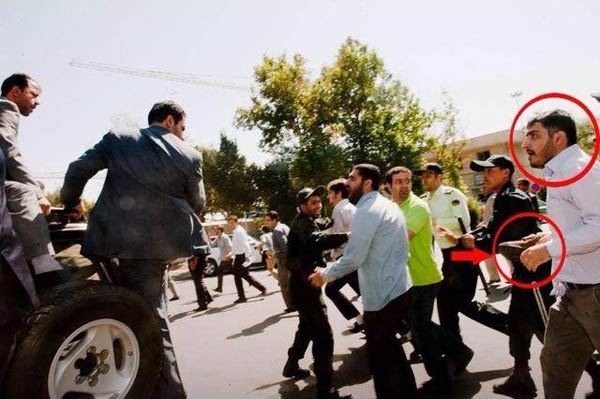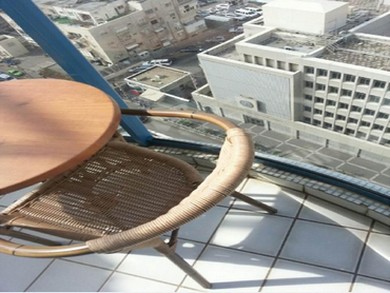October 04-2013
by Warren L. Nelson
The head of the Pasdaran says President Rohani made a mistake by agreeing to talk with President Obama during his visit to New York last week, and added that the Pasdaran are always happy to correct the president when he does wrong.
On the other hand, 230 Majlis deputies—80 percent of the body’s membership—signed a statement endorsing the way Rohani conducted himself in New York. Since only about 60 deputies can be considered Reformists and assuming all of them signed the letter, then about 70 percent of the body’s conservatives must have signed the letter to bring the total signatories to 230.
Taken together, this suggests that most politically active conservatives are fully behind the shift in foreign policy being pushed by Rohani, but significant hardliners are resistant and not about to bend.
Normally, on major policy issues, after the Supreme Leader makes clear his position, everyone falls into line—including the head of the Pasdaran, who is appointed by the Supreme Leader and can be replaced by him at any time.
For Maj. Gen. Mohammad-Ali Jafari to come out publicly in conflict with Khamenehi suggests that a great many Pasdar general officers are unhappy with the turn of events and Jafari feels a need to kowtow to them. It is widely assumed he had Kha-menehi’s clearance to do that—probably because Khamenehi wants him on the inside of any discussion by Pasdar generals and not frozen out.
But Jafari’s choice of words was chilling, even threatening to Rohani. The Tasnim news agency quoted him as saying the government “could make tactical errors, like the phone call with Obama, but these can be corrected and repaired.” But, Jafari said, if there are “errors made by officials, definitely the revolutionary forces and their sympathizers will issue the necessary warnings.”
Jafari said it would have better if Rohani had waited for Obama to take some concrete steps to change US policy before he had made any contact. “The White House should lift sanctions against the Iranian people, release Iran’s blocked and frozen assets, drop its hostility and cease its plots against the Iranian people and also admit its right to peaceful nuclear technology,” Jafari said.
This was similar to what many Republicans have been saying. They consider any presidential contact with Iranian officials to be granting legitimacy and argue that Washington should do nothing kindly for Iran until it dismantles its nuclear program. The hardliners in Iran want the Iranian government to do nothing kindly toward the United States until it dismantles its current Iran policies.
Echoing Jafari, Gen. Amir-Ali Hadjizadeh, the commander of the Pasdar air force, said, “US hostility cannot be forgotten with a phone call and a smile.”
But the 230 Majlis deputies did not share that view. They said they “appreciate the firm and wise positions of esteemed President Hojatoleslam Dr. Rohani at the UN.” (In English usage, a person’s highest title is normally used, while in Persian usage all titles are strung out in a line.)
The letter said Rohani “portrayed the image of a powerful and peace-seeking Iran that pursues talks and interaction for the settlement of regional and international issues while remaining loyal to the values and causes of the Islamic revolution.”
Media attention focused less on the Majlis and Pasdar reactions than on what happened at Mehrabad airport when Rohani returned. A few hundred citizens greeted him there. Most shouted support for what he did in New York. But a few dozen screamed against Rohani, carried signs with such slogans as “Marg bar Amrika” (Death to America) and rushed his car, clearly rattling his bodyguards. At least one shoe was thrown at Rohani but did not hit him.
Such small incidents, however, say nothing about public opinion. No reputable poll has been taken since Rohani was in New York. The only poll that reliably shows public opinion was the one taken in June where Rohani got 51 percent of the public’s votes and Saeed Jalili, the sole candidate running on a firmly hardline position got only 11 percent.
A key question is where Supreme Leader Ali Khamenehi stands. He has said nothing since Rohani’s return. That is a common approach by Khamenehi, who often waits to see how opinion sorts itself out.
However, in an unusual move Khamenehi dispatched his senior foreign policy adviser, Ali-Akbar Velayati, to Mehrabad to greet Rohani on his return and stand beside him at the airport reception event, in what was widely seen as Khamenehi’s endorsement of the president.
A common tactic by conservatives was to frame what happened in New York as a great victory for the Islamic Republic. For example, Deputy Alaeddin Borujerdi, the chairman of the Majlis National Security Committee, said Obama’s telephone call to Rohani was a demonstration of Iranian “might.”
But while that kind of spin appealed to some, it revolted others. The rajanews.com website said there was absolutely no justification for talking to the “Great Satan” and dismissed the telephone conversation as “a strange and useless step.”
Some Tehranis joked that talks between the two presidents would be between Hassan and Hussein, putting a humorous cast on developments but also invoking the names of Shia Islam’s most revered figures.


















